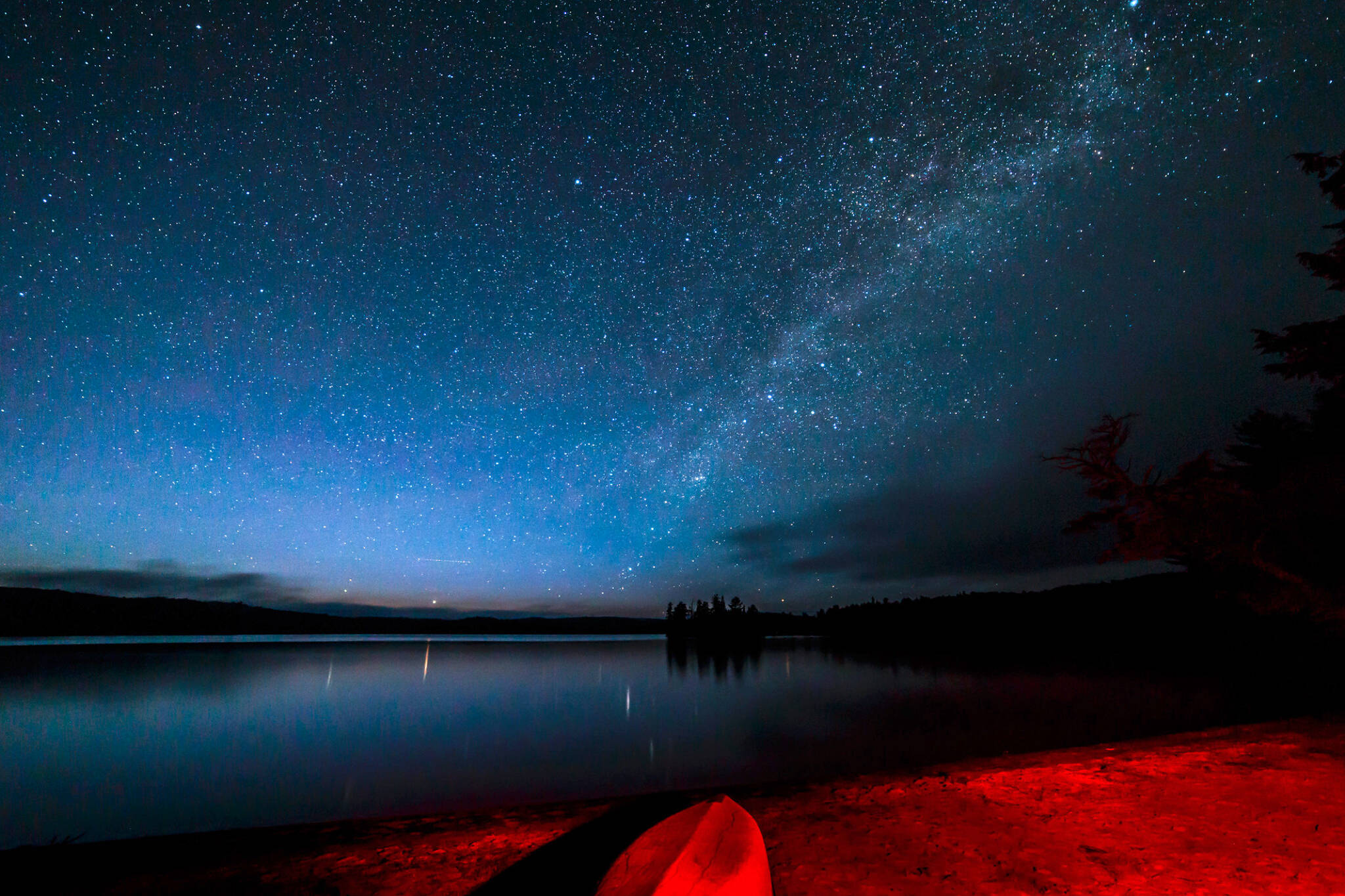
U of T professor creates astronomy class with an Indigenous lens
For the first time ever, the University of Toronto is offering a course that takes an Indigenous perspective on astronomy.
Hilding Neilson, an assistant professor at the David A. Dunlap department of astronomy and astrophysics in the Faculty of Arts and Science, created the third-year course called "Indigenous Worldviews & Astronomy" for U of T students who are interested in Indigenous perspectives, ethics and colonization in science.
Neilson, a Mi'kmaw from the Qalipu First Nation, says he believes viewing astronomy exclusively through a Western lens can be limiting.
"We tend to omit Indigenous perspectives and methods in this discussion, even though we live and benefit from being on Indigenous lands," says Neilson. "By embracing Indigenous and other knowledges, we bring more lenses – and that can only enrich our view and understanding of the universe."
Neilson says he was inspired to create the course after hearing a lecture from Wilfred Buck, a science facilitator at the Manitoba First Nations Education Resource Centre and an Indigenous star lore expert.
The course Neilson created will explore Indigenous knowledge of astronomy, how people use the stars for navigation and rituals.
It will discuss astronomy and ongoing colonization with cases such as the Kanaka Maoli Indigenous people of Hawaii, who are protesting the lack of consent for the Thirty Meter Telescope.
Aquaman star Jason Momoa has joined the protest to block the construction of the Thirty Meter Telescope in Mauna Kea. pic.twitter.com/nlDISZYqi3
— IGN (@IGN) August 10, 2019
There is also the question of permissions when wealthy people such as Jeff Bezos and Elon Musk (SpaceX) go ahead with space programs unchallenged.
"There's a new realm of colonization that's occurring that's going to have negative impacts on both Indigenous and non-Indigenous peoples," Neilson says.
Putting more and more satellites in the sky is changing how we see the night sky.
"A lot of the SpaceX satellites are bright enough that they can be seen with the unaided eye in dark spots," he says. "This creates a form of light pollution that impacts our view of the night sky. And nobody's actually asked for, or consulted with Indigenous peoples about whether that's okay to have that light pollution."
There may be some Indigenous people who want more access to the Internet that the satellites can provide, he says, adding: "But there's not a whole lot of discussion about it."
There is also the language of colonization that continues when people speak about going to the moon or Mars.
"The whole language of going to Mars, from science fiction to movies, like The Martian to how we actually go about today, it is the same language of colonization."
While Mi'kmaq culture wasn't a large part of his life growing up, Neilson says he decided to learn more after hearing Buck speak.
"I feel that learning from Indigenous knowledges have allowed me to relate and connect with the science more deeply, and to think about how I myself relate to that knowledge," Neilson says.
"It has made me a better scientist."
With notes from Meaghan MacSween, University of Toronto
Latest Videos
Latest Videos
Join the conversation Load comments







